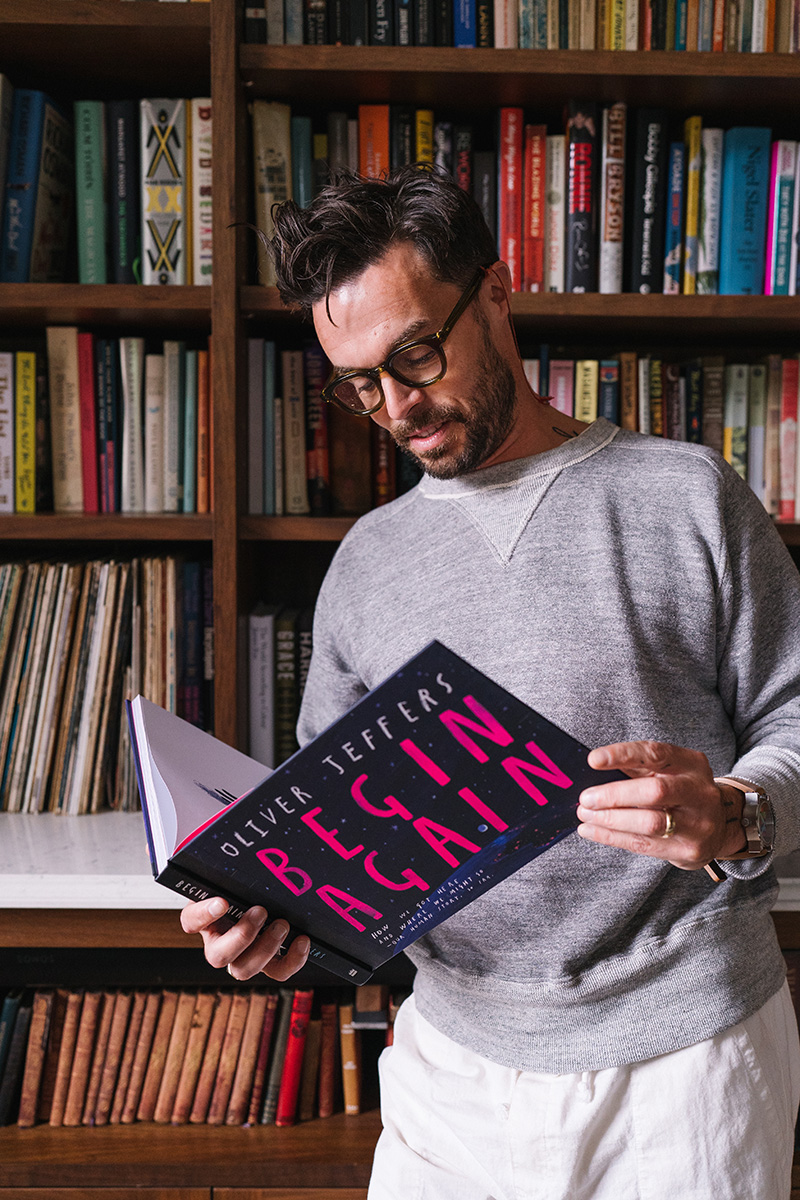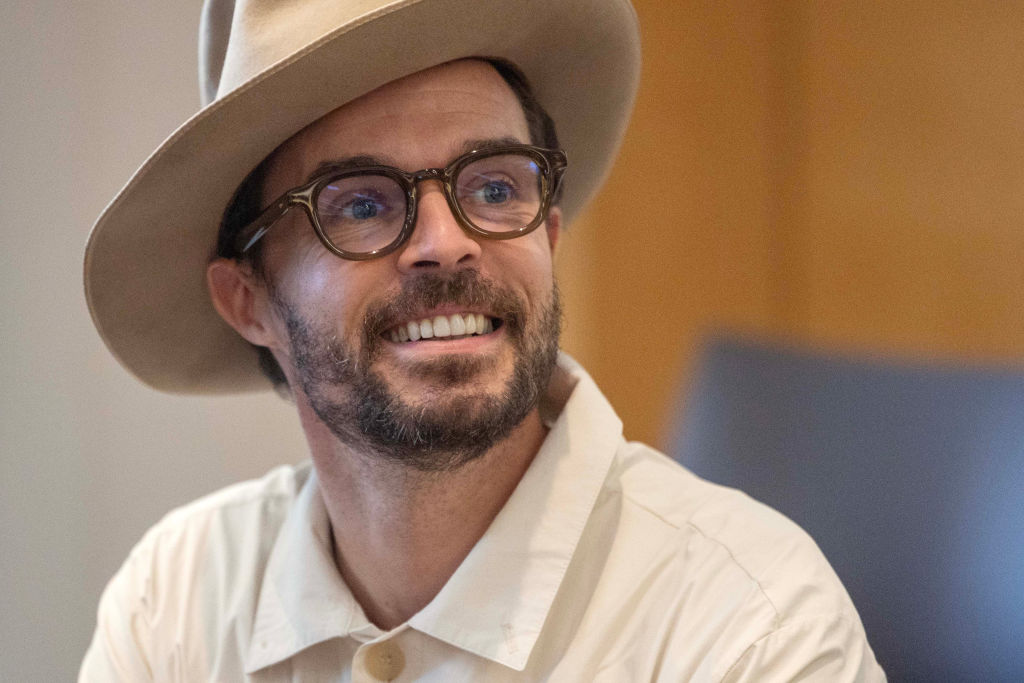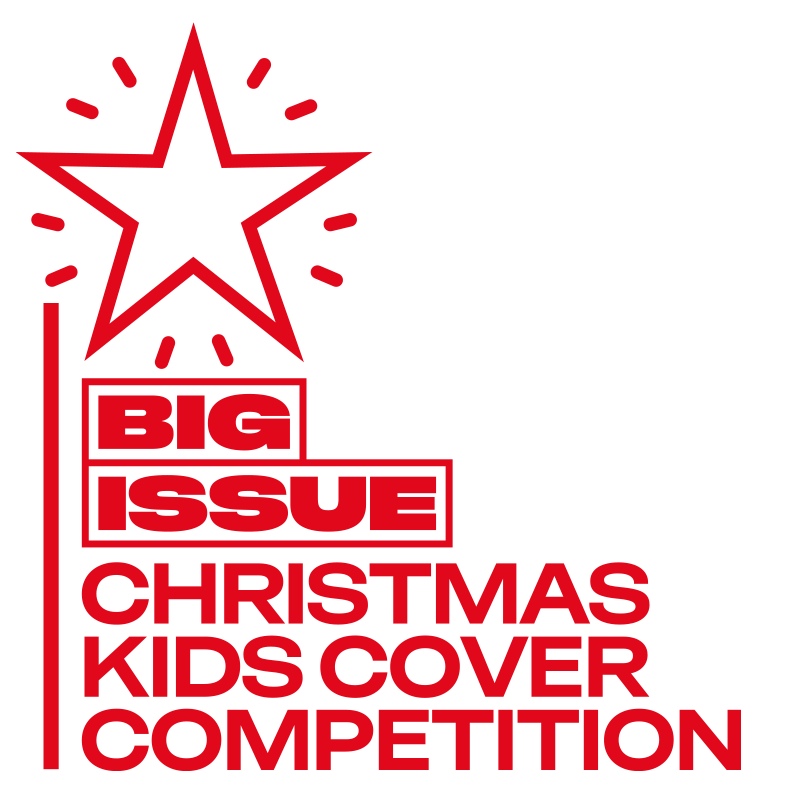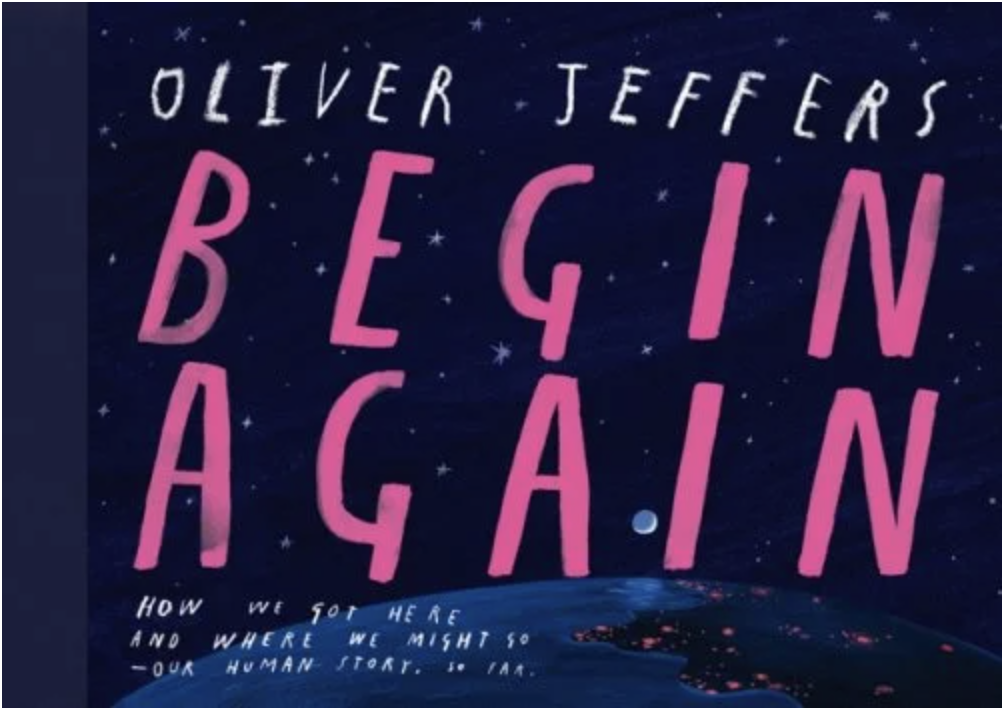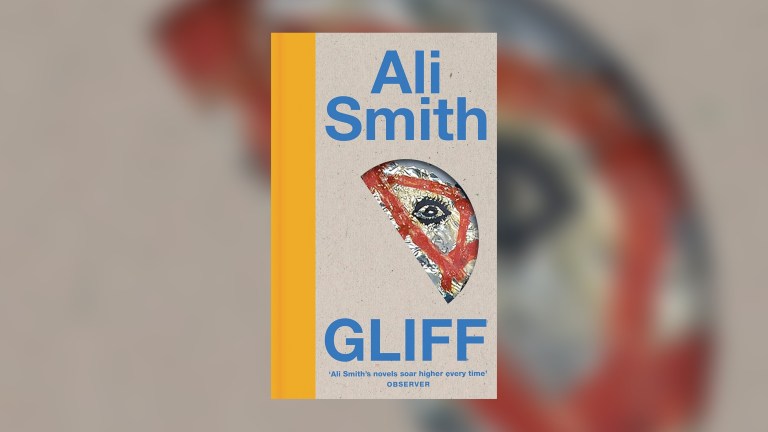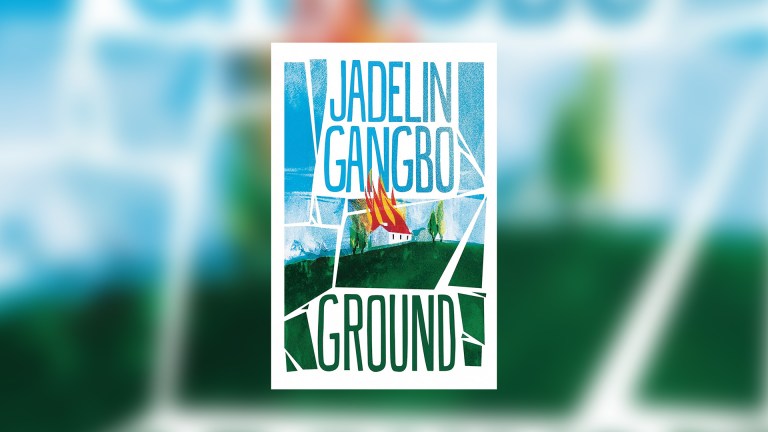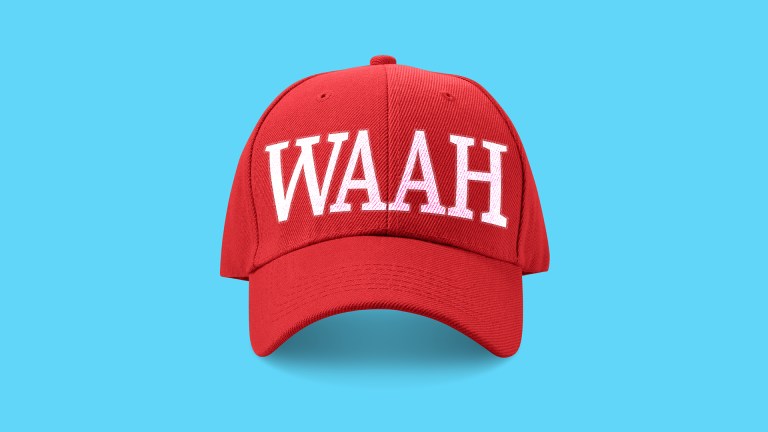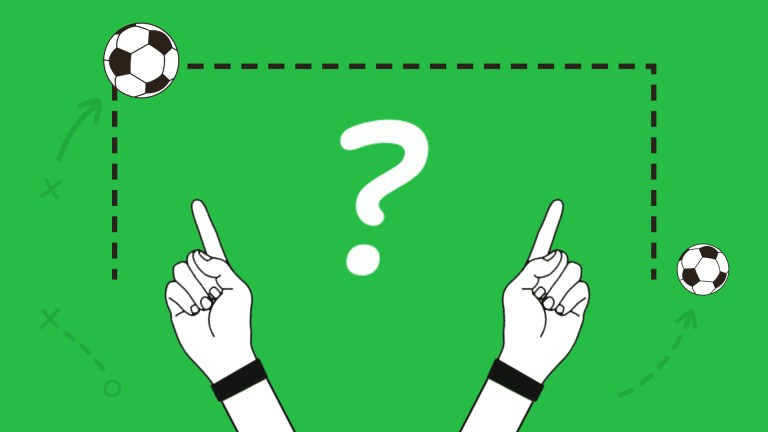Get the latest news and insight into how the Big Issue magazine is made by signing up for the Inside Big Issue newsletter
Where did the book’s journey begin?
This book is the culmination of years of my thinking, my pattern recognition, my visual concepts and opinions on the trajectory of society distilled into a single poetic thread. Around the birth of my son, it seemed as though the world was unravelling, and I began speaking publicly about things I’d always quietly observed and been moved by, but had not yet outwardly verbalised. I felt the need to question the motivations of the stories that dominate the world stage, to make sense of them somehow. But rather than just pointing out what was wrong and adding to the ever-growing noise of anger reverberating around the planet, I tried to remain hopeful. I grew to recognise that by giving visual voice to my thoughts, I helped other people find their voice too, which encouraged me to continue doing so. And so began Begin Again!
Before that, where did your journey to becoming a storyteller begin?
Growing up in Northern Ireland with three brothers feels like a major foundation for me as a storyteller. Telling stories was so much a part of our childhood. And a huge part of the culture at that time too within Belfast – we’re naturally born storytellers!
What audience do you have in mind – does it include young children who are discovering new things, experiencing new beginnings every day?
I think, at its core, Begin Again is universal. I hope so anyway. After I began working on this, I was like, ‘I don’t think this is a book for children.’ I don’t know if I was necessarily aiming at adults either, I just thought, ‘I’m not going to try and simplify some of these things so much that I’m diluting the point.’
This book is for the people that feel left out of the story. The white van driver. The cleaner at the hotel. The people who might feel sort of ‘what’s the point?’.
Is it important to understand the roots of all the ‘big issues’ we have today?
I think this is so important. Mainly to remember that the most urgent issues we as a society are wrestling with today are the same ones that only a generation ago were met with indifference. That we now recognise them and debate them, at the very least, seems to show we’re taking slow but steady steps in the right direction, despite how many more steps we know we still have to take.
The world is full of ‘us and them’ thinking – what are the differences between those two groups, wherever they are in the world, whatever their issues may be?
I grew up in the politically divided and violent city of Belfast. I know all too well the destructive patterns of an ‘us and them’ mentality – how two opposing communities become insular and defensive, how their own identities become dependent on the existence of an enemy. “I don’t know who I am, but I know who I’m not” all too often spills into violence. Though, even though we reflect on the differences between these us’s and thems, I have this fundamental belief that even people who are seemingly very opposite to us are much closer than we think they are. It’s so much about a defensive mentality that people keep retracting to.
Stories divide us – can only stories bring people together?
I think storytelling is perhaps the most powerful force that humans have at their disposal. I really hope this book helps create an entry point for everybody to get behind the same single story.
Where do we go from here?
We need to prioritise unity, I think. We need to recognise how much work there is to be done. There’s been a bit of a reckoning over the last couple of years, where we’ve started to recognise that the old rules that used to work for some aren’t working for all, and that things need to change. But just the fact that we’re recognising that at all is a step in the right direction.
Christmas Kids Cover Competition: how to enter
This year’s theme is WELCOME. Think about what that means to you and what it represents, during the
festive period and beyond.
We’re on the lookout for bright, bold, eye-grabbing art that will help our vendors sell lots of copies. Artwork can be drawn with pencils or pens, paints, creative collages or designed on a computer or tablet.
Anyone aged 13 or under can enter. Send all entries with a name, age, address and telephone or email contact by 25 November.
By post
Christmas Kids Cover Competition,
The Big Issue,
43 Bath Street,
Glasgow,
G2 1HW
By email
editorial@bigissue.com and write KIDS COVER COMPETITION in the subject line. Make sure that your image is high resolution.
We can’t return artworks, but will print as many pictures as we can squeeze onto the page. All entries will also feature in a spectacular online gallery!
Begin Again: The Story of How We Got Here and Where We Might Go by oliver Jeffers is out now (HarperCollins, £20). You can buy it from The Big Issue shop on Bookshop.org, which helps to support The Big Issue and independent bookshops.
Oliver Jeffers will be discussing the book at the Southbank Centre’s London Literature Festival on 22 October. Tickets £15. SouthbankCentre.co.uk
This article is taken from The Big Issue magazine, which exists to give homeless, long-term unemployed and marginalised people the opportunity to earn an income. To support our work buy a copy!
If you cannot reach your local vendor, you can still click HERE to subscribe to The Big Issue today. Or give a gift subscription to a friend or family member.
You can also purchase one-off issues from The Big Issue Shop or The Big Issue app, available now from the App Store or Google Play
